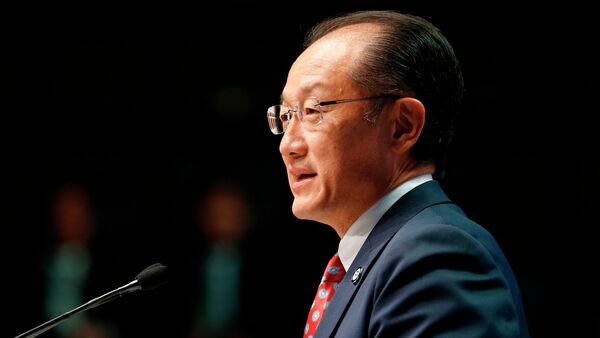MOSCOW, November 4 (RIA Novosti) — World Bank President Jim Yong Kim said Tuesday that the South Korean economy is expected to grow around 4 percent in 2014, outperforming many European nations, Yonhap reported.
"The good news is that the [South] Korean economy will grow at around 4 percent this year. So, compared with other OECD [Organization for Economic Cooperation and Development] countries, this is very healthy, robust growth," Yong Kim was quoted as saying by the news agency at a press conference in Seoul.
"East Asia will be responsible for a third of world trade next year. So the outlook is strongest for East Asia,” he added.
Despite the positive economic outlook, South Korea still has a number of issues it needs to address to prompt further growth, such as socioeconomic hierarchies related to age and gender, the World Bank chief believes.
“Today, unleashing the full creative potential of students, women and young people and encouraging the free flow of ideas through the economy constitutes Korea’s next socioeconomic frontier,” Yong Kim was quoted as saying in a World Bank report on his Seoul visit.
According to World Bank data, more South Korean women than men graduated from university in 2012 but only 56 percent of working-age women have jobs today, compared to 78 percent of men. The report also noted that the women earn 37 percent less than the men, making it the biggest gender gap in any OECD country.




